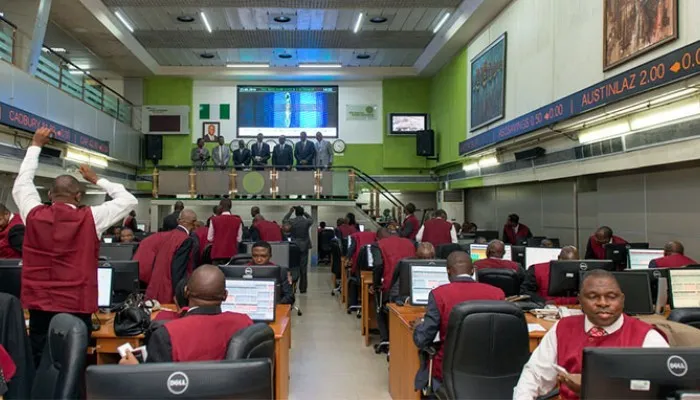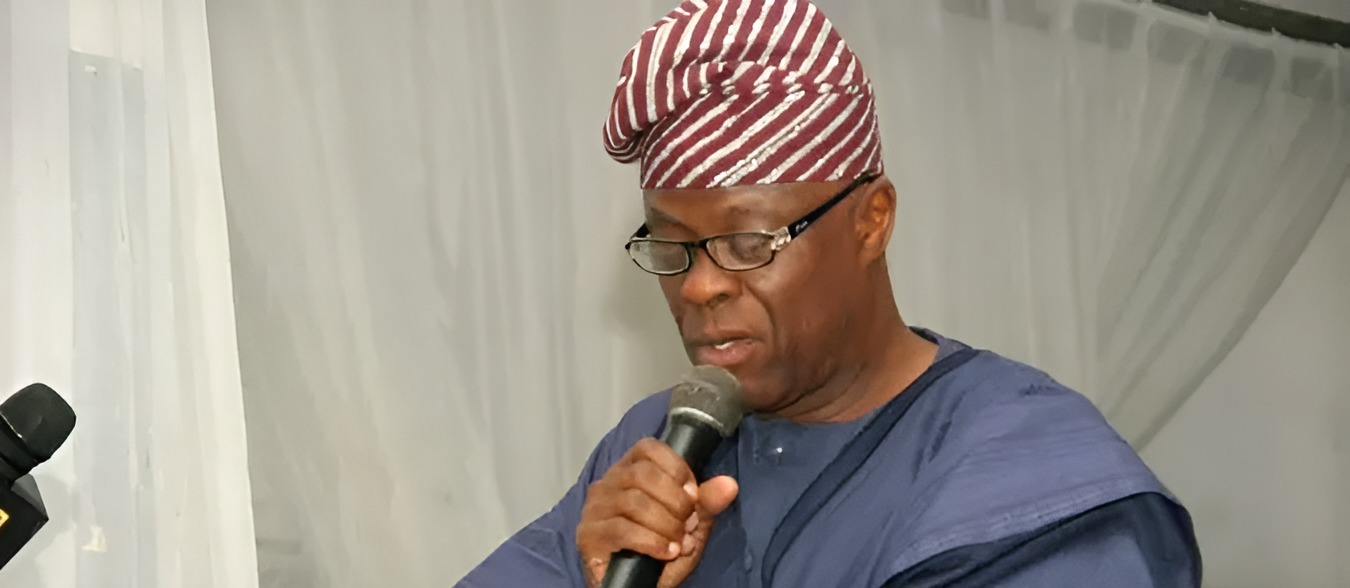As the new Group Chief Executive Officer of the Nigerian National Petroleum Company Limited, Bayo Ojulari settles down for his new assignment amid high expectation from the company’s and industry stakeholders, his jobs are already-well cut out for him and he has no other option than to deliver results, Peter Uzoho writes
A new board and management team have now taken over the leadership of the Nigerian National Petroleum Company Limited (NNPC), following the appointment of a new 11-man board by President Bola Tinubu last Wednesday, with the board headed by a non-executive chairman, Mr. Musa Kida and the management led by Mr. Bayo Ojulari as the Group Chief Executive Officer (GCEO).
The new team has been hailed and praised by many oil and gas industry stakeholders and analysts within and outside Nigeria because it is filled with notable seasoned oil and gas professionals who have had a record of excellence and success in their previous jobs and have earned the respect of the industry.
NNPC is at the heart of the Nigerian economy and the nation’s survival because of the size of the country’s oil and gas assets and resources placed in its hands which spans the upstream, midstream and downstream. The company’s total asset, as of the end of 2023, was N246.8 trillion. Such a humongous asset, no doubt, needs to be properly managed to ensure value optimisation in a manner that ultimately results in a better life for all Nigerians via industrialization, job creation and poverty reduction.
The Targets to New Team
Interestingly, the president while announcing the appointment of the new board and GCEO, also handed out an immediate action plan, charging the new board and GCEO to conduct a strategic portfolio review of NNPC-operated and Joint Venture Assets to ensure alignment with value maximisation objectives.
Tinubu emphasised that the board’s restructuring was crucial for enhancing operational efficiency, restoring investor confidence, boosting local content, driving economic growth, and advancing gas commercialisation and diversification.
The current administration has so far implemented a rash of reforms to attract investment in the Nigerian oil and gas industry, resulting to new investment in the sector rising to $17 billion, with plans for further increase to $30 billion by 2027 and $60 billion by 2030.
The Tinubu administration targets raising oil production to two million barrels per day (bpd) by 2027 and three million bpd by 2030. Concurrently, the government wants gas production jacked to 8 billion cubic feet daily (8bcf/d) by 2027 and 10bcf/d by 2030.
Furthermore, President Tinubu expects the new board to elevate NNPC’s share of crude oil refining output to 200,000 bpd by 2027 and reach 500,000 bpd by 2030.
Sustaining crude-for-naira arrangement
One of the key issues that should be on the table of the new GCEO and the board is the reactivation of the collapsed naira-for-crude arrangement between the NNPC and local refineries. The deal was introduced by the federal government in October 2024 to improve supply of crude oil to Dangote Refinery and other local refineries, to save the country millions of dollars in petroleum product imports, and ultimately reduce the pump prices of fuel, which was selling above N1000 per litre at the time.
However, the deal has been stuck after the first one year of implementation as the parties have not been able to reach an agreement to continue owing to the risk the deal is posing to their profitability. Last Month, Dangote Refinery cancelled the sale of its product in naira, citing a mismatch with its crude purchase obligations.
The stalemate has led to the sharp rise in the price of petrol as all the marketers including NNPC and off-takers of Dangote products have jacked up their pump prices from the previous N850 to now N950 and above. It now means that the naira-crude arrangement should be urgently reactivated to ensure that petrol price does not continue to rise and also impact on cost of commodities in the country.
The Ojulari-led team should find a way to ensure that more feedstock is made available to Dangote and other local refineries to enable continue to made products available to Nigerians and ensure that the gains already made in reducing importation of products are not eroded.
To achieve this, the new NNPC management should take a second look at the existing forward sales agreement the company has with international lenders otherwise known as crude-for-cash agreement, where it committed a lot of its future production in exchange for cash either to invest in its business or support the currency.
This has contributed to limiting the company’s ability to allocate the needed volume of crude to local refineries. While the company may have a genuine reason for entering into those crude-for-cash deals with lenders, which include momentary foreign exchange provision to the government, there is the need to end that arrangement as it amounts to mortgaging the livelihood of the future generation.
Completion of IPO
One other key area of focus for the new NNPC board and management is the completion of the company’s Initial Public Offer (IPO), which has become long overdue and has been prescribed by the Petroleum Industry Act (PIA) 2021. In a somewhat premature press statement issued but later withdrawn, last month, the immediate-past Mele Kyari-led NNPC had announced that the company had reached the final stage of getting listed in the capital market, in keeping with the provisions of the PIA 2021.
The statement said NNPCL was currently engaging with prospective partners in an exercise tagged: “NNPC Limited IPO Beauty Parade,” in line with capital market regulations before the commencement of the Initial Public Offer (IPO).
An IPO is a public offering in which shares of a company are sold to institutional investors. The PIA provides for the NNPCL to list its shares in the capital market in line with the provisions of the Company and Allied Matters Act (CAMA) 1990.
Industry stakeholders have called for the new NNPC leadership to take IPO as one its priority to enable the company boost investor confidence, improve on its transparency and accountability and good corporate governance.
“I expect they should now complete the IPO, which is to take NNPCL to become a public company, which means it will be traded on the Nigerian Stock Exchange,” Managing Director of 11Plc, Mr. Tunji Oyebanji told THISDAY.
“And what that means is that the standard of governance has to improve and become more transparent and in line with other companies so that it will be operating according to the guidelines of the Stock Exchange and the Financial Reporting Council of Nigeria.
“So, I believe that should bode well for the company as many of the decisions will be more business-like and commercial-driven rather than being politically-driven,” he added.
While NNPC maintains that it has to guarantee energy security in Nigeria, many stakeholders say once the company can take the step of going public and floating its shares on the Stock Exchange, the corporate influence will begin to reduce and the influence of the shareholders will begin to become more important
JP Morgan’s analysts also stated that the next catalyst for the Nigeria’s oil sector reform was new NNPC FX financing arrangements, which should boost FX liquidity in the near term, adding that, “media reports suggest NNPC is in the final stages of agreeing another medium-term FX financing arrangement, collateralized with future oil output.”
“If these arrangements are finalised in the coming months, the NNPC could have up to $9.5 billion in new financing, which could be used to clear arrears owed for petrol imports and potentially contribute to FX reserve rebuilding. However, while this financing arrangement had appeared imminent a few weeks ago, it is unclear what impact the change in management at the NNPC would have on its timing,” they added.
Total Overhaul
In his intervention, Energy expert, Mr. Dan Kunle, called for a total overhaul of NNPC from personnel to assets.
“We need a total overhaul, reconfigure the management team, blend it up with brilliant and strong competent legal services. Commercial and financial accounting must be strengthened to allow for confidence from investors all over the world.
“This will assist the new Board to attract the best brains for the industry recovery in Nigeria. It will also help the NNPC IPO because investors will Trust the entire management team and processes.
“Most of the Subsidiaries of NNPC LTD must be yank off to stand on their own and subsequently privatised, such as the Refineries and NNPC E&P in Benin,” he added.
QUOTE
“We need a total overhaul, reconfigure the management team, blend it up with brilliant and strong competent legal services. Commercial and financial accounting must be strengthened to allow for confidence from investors all over the world. This will assist the new Board to attract the best brains for the industry recovery in Nigeria.”


